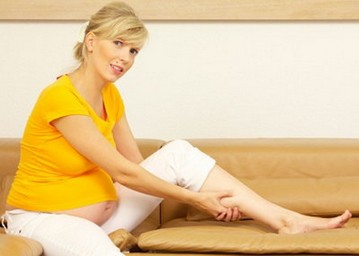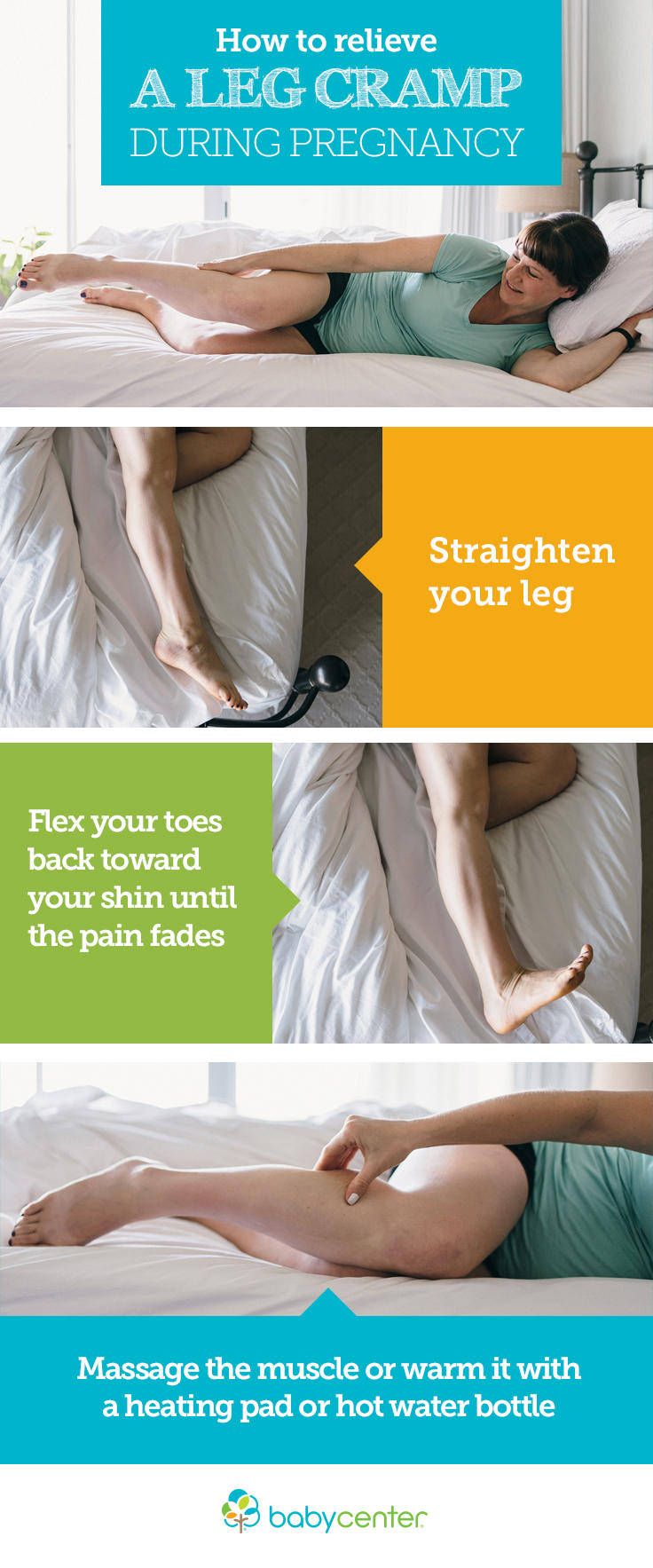Leg Pain During Pregnancy

Contents:
- Why Pregnant Women Have Pains in the Legs?
- How to Avoid or Ease the Pain in Legs During the Course of Pregnancy?
Pain in Left and Right Leg in Pregnancy
Possibly, even men know that during the course of pregnancy a woman starts feeling pains in the legs. There is nothing surprising about that! A woman carries her belly that is becoming more and more heavy everyday. It becomes really exhausting closer to the end of the pregnancy. Besides, the center of gravity during the pregnancy gets shifted that causes an additional load on legs. It’s certainly hard and unpleasant to be in this state and bear with it. However, very often, women tend to ignore these constant pains. They assume that every woman gets through this and there is nothing that can be done. They are wrong. The pain in the legs may be a sign of a serious disease.
Why Pregnant Women Have Pains in the Legs?
- The weight of a woman is constantly increasing.
- The center of gravity shifts and an additional load on the legs occurs.
- As a rule, the pulsing pain and the swelling of the legs are caused by an excess of accumulated liquid in the organism of a woman.
- Ingrown nails on feet during the course of pregnancy can also cause a certain feeling of discomfort. Most often, the reason for such a case is tight footwear that future mothers put on.
- Cramps may occur because the amount of blood is increased and there is an increased level of progesterone in blood during the course of pregnancy. Also cramps are an important symptom if the organism of a woman lacks iron or calcium, there is a case of anemia or a woman drinks too much coffee. As a rule, cramps in legs occur during the nighttime period. Women on the late stages of pregnancy are especially the ones who suffer from cramps.
- A constant nagging pain in legs, especially when a mother had to walk or stand for a long time. This is usually connected with varicosity.
Pregnancy is very often accompanied by varicosity. Even if you had never had such a problem before, when you get pregnant, you automatically get into the group of risk. Since you and your baby have one blood circulation system for both of you, varicosity may lead to a lack of feral oxygen nutrition. This is because the fetus gets all important nutrients from your blood. That’s why you need to take necessary measures as soon as possible.
It is not difficult to detect a case of varicosity during the course of pregnancy:
- Your legs are in constant nagging pain (especially if you had to stand or walk for a long time);
- There is a sensation of burning, itching, prickling, tiredness and an overload in your legs. You notice the swelling and vascular spiders;
- You experience cramps in the legs during the nighttime.
How To Avoid Or Ease The Pain In Legs During The Course Of Pregnancy?

- Drink a lot of water. The swelling is bigger when your organism is dehydrated.
- Cut down on the amount of salt you eat. This way, the water will be able to easily get out of your system.
- Stick to a balanced diet. Your diet should necessarily include products that contain lots of proteins (beans, cheese, fish, meat).
- Keep an eye on your weight. If you gain more weight during the course of pregnancy that it is recommended, there can be more cases of legs swelling.
- Try not to stand on your feet for a long time. If you had to, you need to necessarily have a rest when it is possible. You may, for example, sit down and raise your legs. If your legs swell, you need to raise your legs as often as possible.
- Do not cross your legs while sitting.
- Sleep on your left side. Inferior vena cava that transfers the biggest amount of blood in the organism is located on the right side. This way you will significantly decrease the load on it and avoid pain in the legs during the course of pregnancy.
- Put on socks that are not too tight.
- Special tights help preventing the vessel problems. There are also special knee-highs, stockings and bandages that are made from a special compressing knitwear.
- Shoes and boots should be comfortable and have a small heel. The insole and shoe last should be properly made.
- Learn to walk in a right way. It is necessary to have a body posture in case of which your weight will be equally divided between your legs and your spine should be absolutely straight. The maximum amount of load should be put off of it. In order to do it you need to try not to sag the small of your back too much and not to lean back the upper part of your body (you really want to do it on the late stages of pregnancy when the belly becomes really big). You need to start training beforehand, when your belly is not that evident yet, then you won’t get such a problem as varicosity. By walking with a book on your head, you can learn to walk in a right way and have a right body posture.
- Do not miss out on the chance to walk barefoot on a river or sea sand or the morning dew.
- If your legs are too tired by the end of the day, have a foot bath. The bath should be of room temperature. After that, apply a cooling gel on the legs and massage them a bit.
- If there are also pains in the feet, try the following: Pour a really cold water in a big basin or a bath, then get into it and shift from foot to foot. Alternatively, you may simply pour some cold water on your ankles and calves. Then, you should wipe the legs thoroughly with a towel.
- There are special creams and ointments that help avoid or ease the case of varicosity. Since these means are made on the basis of horse chestnut extract, it is absolutely safe to use them during the course of pregnancy.
- Massage and special exercises will keep the blood circulation going and decrease the possibility of the pains in the legs during the course of pregnancy. Swimming is also quite helpful.
- You need to avoid being on the sun for a long time. Of course, you shouldn’t sunbathe on purpose. Ultraviolet makes the walls of the venous vessels weaker and contributes to the case of the varicosity occurrence during the course of pregnancy.
- You need to replace having a bath by taking hot and cold showers. They will make the walls of the venous vessels stronger and significantly decrease the pain in the legs.
- You shouldn’t lift heavy things and do a job that involves a great physical load.